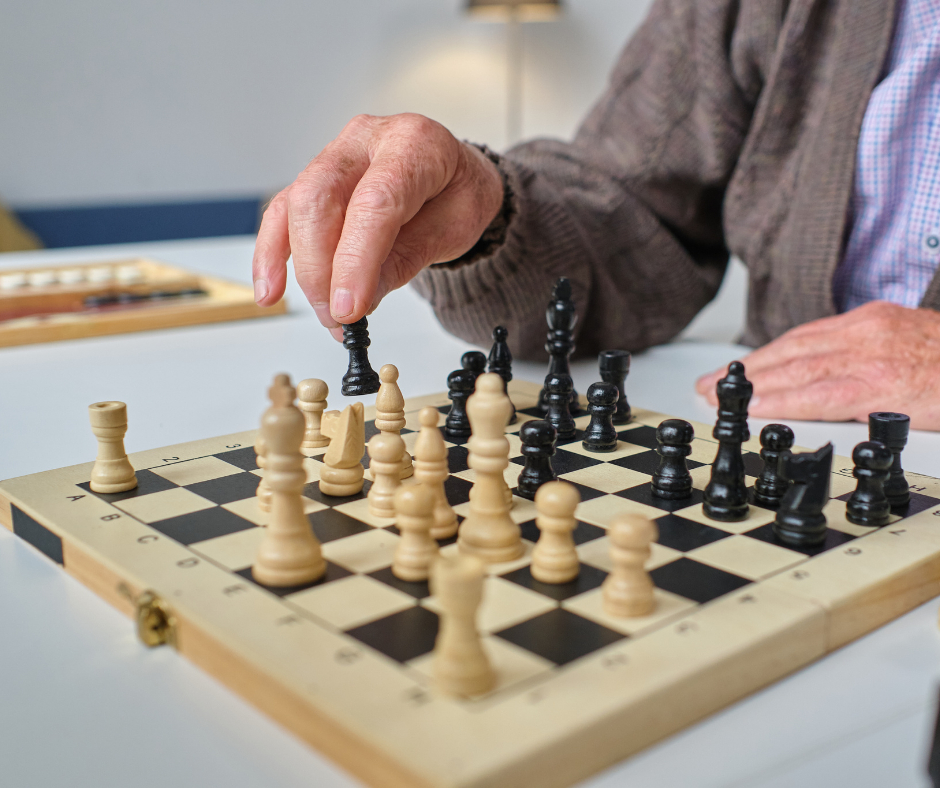11 Lifestyle Changes to Safeguard Seniors’ Mental Health
Did you know that nearly one in three seniors experience symptoms of depression? It’s a staggering statistic that highlights the importance of safeguarding the mental health of older adults.
Fortunately, there are lifestyle changes you can make to promote a sense of well-being. You can enhance your mental health and overall quality of life by exercising regularly, maintaining a balanced diet, fostering social connections, and seeking mental stimulation.
Let’s explore 11 simple but impactful changes you can make today.
Physical Exercise
Engage in regular physical exercise to improve your mental health as a senior. Physical exercise is crucial for healthy aging and maintaining cognitive function.
As you age, your brain undergoes changes that can impact your cognitive abilities. Regular exercise can help counteract these changes and improve your overall cognitive function.
Physical activity increases blood flow to the brain, delivering essential nutrients and oxygen that support brain health. It also stimulates the release of endorphins, which are natural mood boosters that can help reduce symptoms of depression and anxiety.
Additionally, exercise promotes the growth of new brain cells and strengthens existing connections, enhancing your memory and cognitive skills.
Balanced Diet
Maintaining a balanced diet is essential for safeguarding your mental health as a senior. Nutritional requirements change as we age, and prioritizing healthy eating habits becomes even more crucial. Here are three key points to keep in mind:
Variety: Include a diverse range of fruits, vegetables, whole grains, lean proteins, and healthy fats to ensure you receive a wide array of essential nutrients.
Hydration: Drink enough water throughout the day to stay hydrated. Dehydration can lead to cognitive decline and mood disturbances.
- Mindful eating: Slow down and savour your meals. Pay attention to the textures, flavours, and smells. This helps you tune in to your body’s hunger and fullness cues, preventing overeating.
Social Connections
Continue fostering social connections to safeguard your mental health as a senior. Maintaining strong social connections is crucial for overall well-being and happiness. Engaging with your community can provide a sense of belonging and purpose, helping to combat feelings of loneliness and isolation. Participating in community events, joining clubs or organizations, and volunteering can all contribute to a sense of connectedness and fulfillment.
Additionally, technology usage can be a valuable tool for staying connected with loved ones, especially if distance is a barrier. Utilize video calls, social media, and online forums to communicate with friends, family, and like-minded individuals. Embrace the opportunities that technology offers for building and maintaining meaningful relationships.

Mental Stimulation
Stay mentally active to safeguard your mental health as a senior. Engaging in brain games and cognitive activities can provide numerous benefits, such as enhancing memory, improving problem-solving skills, and boosting overall cognitive function. Here are three activities to consider:
Puzzle-solving: Challenge yourself with crossword puzzles, Sudoku, or jigsaw puzzles. These activities stimulate your brain and promote mental acuity.
Learning a new skill: Whether taking up a musical instrument, learning a foreign language, or trying a new hobby, acquiring new skills can keep your mind sharp and engaged.
Reading and writing: Read books, magazines, or articles that interest you. Engage in writing activities like journaling or storytelling to exercise your cognitive abilities and enhance your creativity.
Quality Sleep
To ensure optimal mental health as a senior, it’s important to prioritize getting quality sleep. Improving your sleep can significantly impact your overall well-being and cognitive function.
Sleep hygiene plays a crucial role in promoting restful sleep. A regular sleep schedule helps regulate your body’s internal clock and fosters a sense of routine. Creating a comfortable sleep environment by keeping your bedroom dark, quiet, and calm can also enhance the quality of your sleep.
Avoiding stimulating activities and electronic devices close to bedtime can help you unwind and prepare your mind for sleep. Additionally, practicing relaxation techniques, such as deep breathing or meditation, can help promote relaxation and better sleep. Prioritizing quality sleep can significantly contribute to your mental health and overall vitality as a senior.
Stress Management
Regularly practicing stress management techniques is essential for seniors to safeguard their mental health. As you age, finding effective ways to reduce stress and maintain a sense of calm becomes increasingly crucial. Here are three stress reduction techniques that can help you navigate life’s challenges with greater ease:
Engage in mindfulness practices: Focus on the present moment daily and cultivate awareness. Mindfulness meditation, deep breathing exercises, and guided imagery can help you relax and reduce stress.
Stay physically active: Regular exercise benefits your physical health and positively impacts your mental well-being. Walking, yoga, or tai chi can help you release tension and improve your mood.
Seek social support: Connecting with others is vital for your mental health. Whether spending time with loved ones, joining a community group, or participating in social activities, nurturing meaningful relationships can provide a sense of belonging and support.
Regular Medical Check-ups
By ensuring that you schedule regular medical check-ups, you can take proactive steps to safeguard your mental health as a senior. Preventive care plays a crucial role in maintaining your overall well-being.
Regular check-ups allow your healthcare provider to monitor your physical health and identify potential issues early on. But did you know that these visits also significantly impact your cognitive function?
Medical check-ups can help detect and manage conditions that may affect your mental health, such as high blood pressure, diabetes, or thyroid problems. Additionally, your doctor can assess your medication regimen and make adjustments if necessary, as some medications can have side effects that impact cognitive function.

Limiting Alcohol Consumption
Taking steps to limit your alcohol consumption can have a positive impact on your mental health as a senior. As you age, your body becomes more sensitive to the effects of alcohol, making it crucial to practice alcohol moderation for healthy aging.
Here are three reasons why limiting alcohol consumption is essential:
Protecting your brain: Excessive alcohol intake can lead to cognitive decline and memory loss. By moderating your alcohol consumption, you safeguard your brain health and maintain mental clarity.
Improving sleep quality: Alcohol disrupts sleep patterns, causing restless nights and fatigue. Limiting your alcohol intake promotes better sleep, waking you up refreshed and energized.
Enhancing emotional well-being: Excessive alcohol consumption can exacerbate feelings of depression and anxiety. By moderating your alcohol intake, you create a healthier emotional environment and promote a positive mindset.
Quitting Smoking
To safeguard your mental health as a senior, it’s crucial to quit smoking and take a proactive step towards improving your overall well-being. Smoking not only affects your physical health but also has a significant impact on your mental and emotional well-being. As you may already know, smoking is linked to various mental health issues, such as anxiety and depression.
But don’t worry; there are smoking alternatives and nicotine replacement therapy options available to help you quit. Smoking alternatives like e-cigarettes or nicotine gum can provide a healthier alternative to traditional cigarettes. Additionally, nicotine replacement therapy, such as patches or nasal sprays, can help reduce cravings and withdrawal symptoms.
Quitting smoking may not be easy, but with the proper support and determination, you can protect your mental health and enjoy a better quality of life.
Engaging Hobbies
Finding engaging hobbies can be a beneficial way for seniors to safeguard their mental health. As you age, exploring activities that bring you joy and fulfillment is essential.
Engaging in creative pursuits allows you to express yourself and stimulates your mind, fostering a sense of purpose and accomplishment. Whether painting, writing, or playing a musical instrument, these hobbies can provide a creative outlet and boost your overall well-being.
Additionally, outdoor activities such as gardening, walking, or birdwatching can offer fresh air and a connection with nature. Spending time outdoors has been shown to reduce stress levels and improve cognitive function.
So, why not find a hobby that sparks your interest and brings you closer to the world around you?
Supportive Environment
Create a supportive environment that nurtures seniors’ mental health by surrounding yourself with positive and caring individuals.
Creating an inclusive community is essential for seniors to feel connected and valued. Seek out opportunities to engage with others who share similar interests and values.
Join local clubs or organizations that promote social interactions and provide a sense of belonging. Building solid relationships with family, friends, and neighbours can contribute to a supportive environment.
It’s important to have emotional support from those around you, as it can significantly impact your mental well-being. Reach out to loved ones for companionship, understanding, and encouragement.
Frequently Asked Questions
How Can Seniors Maintain a Healthy Lifestyle to Prevent Mental Health Issues?
To maintain a healthy lifestyle and prevent mental health issues, seniors should prioritize preventing social isolation and engaging in regular physical exercise. These lifestyle changes can significantly impact their overall well-being and mental health.
What Are Some Effective Ways for Seniors to Manage Stress and Anxiety?
To manage stress and anxiety, try stress management techniques like deep breathing and meditation. Natural remedies for anxiety include exercise, herbal teas, and engaging in activities you enjoy. Take care of yourself!
Are Any Specific Hobbies or Activities Particularly Beneficial for Seniors’ Mental Health?
Engaging in hobbies and activities like art therapy or gardening can significantly benefit your mental health. These activities provide a sense of purpose, creativity, and connection, which can help improve your overall well-being.
How Can Seniors Ensure Enough Quality Sleep to Support Their Mental Well-Being?
To ensure you get enough quality sleep to support your mental well-being, try these strategies: establish a regular sleep schedule, create a relaxing bedtime routine, limit caffeine and electronics before bed, and make your sleep environment comfortable and peaceful.
What Are Some Practical Tips for Creating a Supportive Environment for Seniors to Promote Their Mental Health?
To create a supportive environment for seniors, focus on creating a positive and engaging social circle. Encourage regular social interactions and implement mindfulness techniques in daily routines. These small changes can have a significant impact on their mental health.











